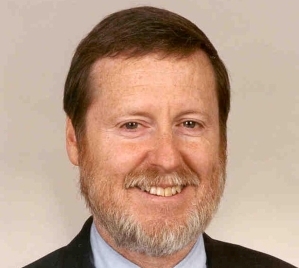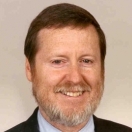

David Rose is being recognized as a Champion of Change for leading education and employment efforts in science, technology, engineering and math for Americans with disabilities.
Each day, educators face an enormous challenge in the classroom: to guide a group of varied individuals toward becoming motivated and successful learners. Teachers know how hard this work is. The personal differences from student to student can be vast. Yet educators often do not have the curriculum tools or support they need to educate in ways that allow various paths for success.
For more than 25 years, my colleagues and I at CAST—an education R&D organization based in Wakefield, Massachusetts—have explored ways to expand and improve educational opportunities for all individuals. This work led us to pioneer the idea of universal design for learning (UDL) in the 1990s. UDL is a set of principles to guide the development of instructional goals, methods, materials, and assessments that are flexible enough to be effective for all individuals.
At UDL’s core is an appreciation—derived from science, and especially cognitive neuroscience—for the tremendous variability and diversity of learners. Some differences are obvious. Students may come from a variety of cultural, racial, linguistic, and socioeconomic backgrounds, bringing assumptions about the world and prior knowledge that differs from others. They may have disabilities—either obvious or hidden—that require them to take a different approach to the curriculum. When we talk about diversity in classrooms, these are the kinds of differences that come to mind.
However, the differences from person to person are often much more nuanced—and profound—than these categories suggest. Neuroscience reveals tremendous differences in how individuals learn even among those who on the surface seem to have a lot in common. Furthermore, science shows variability not just from person to person but within individuals. That is to say, an individual may respond differently at different times to the very same curriculum, depending on the conditions—on whether, for example, they feel threatened or supported.
The challenge then is not just to address diversity in the classroom but the inherent variability of all learners—and to do so ways that build on, rather than downplay, individual differences.
At its simplest, UDL is based entirely on three principles:
1. providing multiple means of representation;
2. providing multiple means of action and expression; and
3. providing multiple means of engagement.
These three principles have been chosen because they address three critical features of any teaching and learning environment:
1. the means by which information is presented -- the “what” of learning;
2. the means by which the learner approach a task and express what they know -- the “how” of learning; and
3. the means by which students are engaged in learning -- the “why” of learning”.
The National Science Foundation and the US Department of Education have supported initiatives to transform STEM and literacy education using UDL principles. In addition, UDL has been prominently featured in the U.S. Department of Education’s 2010 National Educational Technology Plan as well as the 2008 Higher Education Opportunity Act, which Congress passed with strong bipartisan support.
I invite you to visit the National Center on Universal Design for Learning at www.udlcenter.org to learn more about UDL, the comprehensive UDL Guidelines for implementation, and to engage with practitioners who are putting UDL principles to work every day.
David Rose, EdD is a developmental neuropsychologist and educator whose primary focus is on the development of new technologies for learning. Dr. Rose co-founded CAST, a not-for-profit research and development organization whose mission is to improve education, for all learners, through universal design for learning (UDL).


